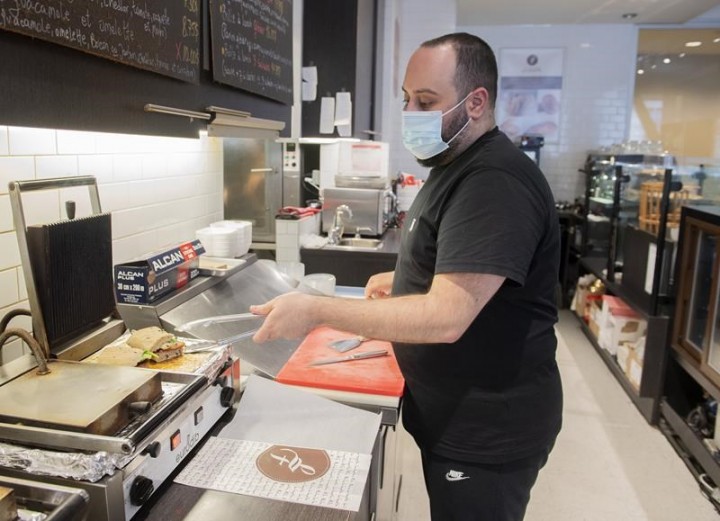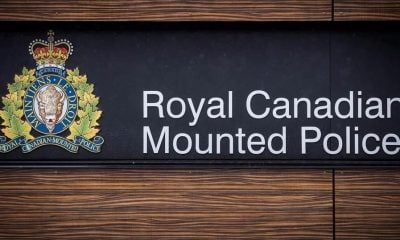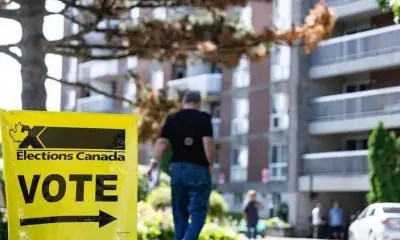MONTREAL — Quebec was the first province in Canada to impose a mask mandate after the COVID-19 pandemic hit, and on Saturday, it became the last province to allow residents to go maskless in most indoor public places.
In force since July 2020, the masking rule expired at 12:01 a.m., allowing patrons of stores, bars, restaurants, gyms and shopping centres, along with students in elementary and high schools, to wear a mask only if they choose to.
Masking remains mandatory, however, on public transit and in health-care facilities. People who contract COVID-19 will have to wear a mask in public while they recover, and companies can set their own rules in the workplace.
Health Minister Christian Dubé said Friday that some Quebecers will continue masking in public and their personal choice should be respected.
“Personally, I think that I will continue to wear (a mask) in certain situations when I feel that I’m more comfortable,” Dubé said. “I’ll see how things evolve in the coming weeks, but I think it’s just respectful to be able to allow people to wear it.”
Masking is recommended for vulnerable people, including the immunocompromised. An association representing people with immune disorders says at-risk residents are worried about having to navigate difficult terrain.
The Association des Patients Immunodéficients du Québec says that while many people might feel society is getting back to normal, that’s not the case for everyone.
Marc Griffin, a Montreal-based mental health-care worker who suffers from an autoimmune disorder, said he feels “left behind.”
“There’s a large swath of us I’d say who are on pins and needles, trying to figure out how to live our lives in a maskless world.”
Griffin said he will spend the coming weeks figuring out how to safely travel to doctor’s appointments. At a minimum, he said, the province should have kept mandatory masking for essential services like grocery stores and pharmacies.
“It’s always a calculated risk and now it’s more calculation, more talking to my doctors about what they recommend I should do,” Griffin said.
Out of respect to those most vulnerable, the province’s 1,900 pharmacies are asking customers to wear a mask when they approach the drug counters. Bertrand Bolduc, president of Quebec’s order of pharmacists, said many customers suffer from a variety of ailments and are deemed at risk for COVID-19.
“We won’t play police, but we’d like for people to wear a mask,” Bolduc said in an interview. “Our staff will also continue to wear it.”
Toby Lyle, owner and co-founder of the Burgundy Lion Group, which operates several bars and restaurants in Montreal, said the masking rule change is “definitely a relief.” He said his staff were finding it increasingly difficult to tell patrons to keep their masks on.
Lyle said staff will be permitted to continue wearing masks if they wish to do so, as will customers.
“If people decide to wear a mask, it’s absolutely fine,” Lyle said. “It’s everyone’s personal choice at that point.”
As for restaurants, an industry association representative said owners are happy to see another measure fall after two years of dealing with mandatory reservations, capacity rules and vaccine passports.
“We’re just happy to not have to apply any guidelines; we don’t have any restrictions to follow, so it will allow restaurant owners to just manage a restaurant and not manage everything else,” said spokesman Martin Vézina.
Dr. André Veillette, an immunologist at the Montreal Clinical Research Institute, said he feels it would have been better to keep masks in place until COVID-19 indicators were lower.
“It would be great if we could maintain it a bit more until case numbers are much lower, but I think at the same time, the goodwill of the people is becoming sparse and people are fed up with it,” Veillette said.
This report by The Canadian Press was first published May 14, 2022.
Sidhartha Banerjee, The Canadian Press
































